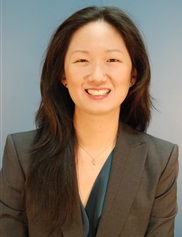Grants Funded
ASPS/PSF leadership is committed to continuing to provide high levels of investigator-initiated research support to ensure that plastic surgeons have the needed research resources to be pioneers and innovators in advancing the practice of medicine.
Research Abstracts
Search The PSF database to have easy access to full-text grant abstracts from past PSF-funded research projects 2003 to present. All abstracts are the work of the Principal Investigators and were retrieved from their PSF grant applications. Several different filters may be applied to locate abstracts specific to a particular focus area or PSF funding mechanism.
Patient Preferences of Social Media in Plastic Surgery: A Conjoint Analysis
Principal Investigator
Cindy Wu MD
Cindy Wu MD
Year
2017
2017
Institution
The University of North Carolina at Chapel Hill
The University of North Carolina at Chapel Hill
Funding Mechanism
Pilot Research Grant
Pilot Research Grant
Focus Area
Cosmetic, Education
Cosmetic, Education
Abstract
Background: Social media has become a valuable tool for patients seeking to educate themselves about various aesthetic procedures and the plastic surgeons that offer them. Multiple studies have examined which social media platforms are in use by aesthetic surgeons. Additionally, there have been publications investigating the percentage of aesthetic surgeons with an active social media presence. However, inadequate research has been done on which attributes on social media platforms are most valuable for prospective patients to gather information and make decisions. We aim to utilize conjoint analysis, a preference elicitation technique, to identify which attributes on social media platforms prospective patients find most valuable in researching aesthetic procedures and surgeons. The conjoint analysis will be given to prospective patients using an Internet crowdsourcing service (Amazon Mechanical Turk [MTurk]). Methods: We will survey 7000 anonymous prospective patients via MTurk. We will use a conjoint analysis to determine, when researching aesthetic procedures and surgeons, their preferences regarding social media platforms (Facebook, Twitter, RealSelf, etc.) as well as the type and quality of content available. We will also compare the results obtained from the crowdsourcing service to the same survey given to our own aesthetic patients.
Background: Social media has become a valuable tool for patients seeking to educate themselves about various aesthetic procedures and the plastic surgeons that offer them. Multiple studies have examined which social media platforms are in use by aesthetic surgeons. Additionally, there have been publications investigating the percentage of aesthetic surgeons with an active social media presence. However, inadequate research has been done on which attributes on social media platforms are most valuable for prospective patients to gather information and make decisions. We aim to utilize conjoint analysis, a preference elicitation technique, to identify which attributes on social media platforms prospective patients find most valuable in researching aesthetic procedures and surgeons. The conjoint analysis will be given to prospective patients using an Internet crowdsourcing service (Amazon Mechanical Turk [MTurk]). Methods: We will survey 7000 anonymous prospective patients via MTurk. We will use a conjoint analysis to determine, when researching aesthetic procedures and surgeons, their preferences regarding social media platforms (Facebook, Twitter, RealSelf, etc.) as well as the type and quality of content available. We will also compare the results obtained from the crowdsourcing service to the same survey given to our own aesthetic patients.
Biography
 Dr. Cindy Wu: After completing one of the most prestigious aesthetic surgery fellowships in the country, Dr. Wu came to the University of North Carolina to further the field of aesthetic surgery by conducting research in patient decision making, marketing, and complications of cosmetic surgery.
Dr. Cindy Wu: After completing one of the most prestigious aesthetic surgery fellowships in the country, Dr. Wu came to the University of North Carolina to further the field of aesthetic surgery by conducting research in patient decision making, marketing, and complications of cosmetic surgery.
 Dr. Cindy Wu: After completing one of the most prestigious aesthetic surgery fellowships in the country, Dr. Wu came to the University of North Carolina to further the field of aesthetic surgery by conducting research in patient decision making, marketing, and complications of cosmetic surgery.
Dr. Cindy Wu: After completing one of the most prestigious aesthetic surgery fellowships in the country, Dr. Wu came to the University of North Carolina to further the field of aesthetic surgery by conducting research in patient decision making, marketing, and complications of cosmetic surgery.